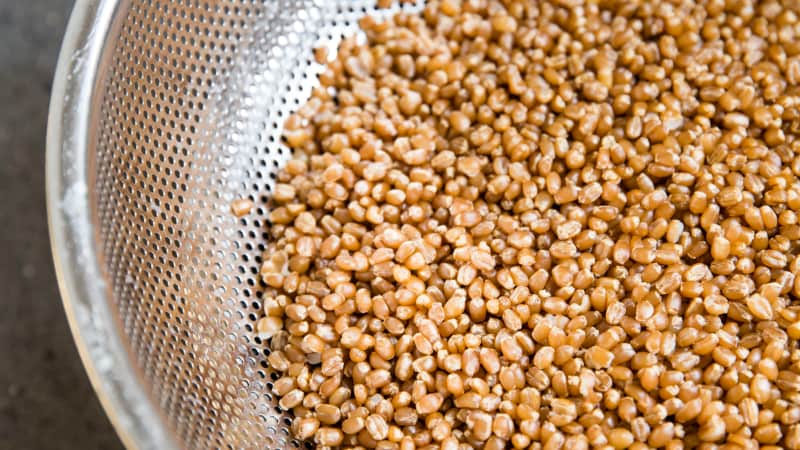For years we’ve been told that for better health we need to eat more whole grains. Has this advice actually been detrimental to our health?
The Truth About Phytates
Published Mar. 30, 2021.

Grains, which are packed with beneficial nutrients such as fiber and protein, play a vital role in a balanced diet. But grains also contain a high proportion of phytates, a compound that has recently been criticized by nutritionists because of its ability to hinder the body’s absorption of certain key minerals.
To better understand phytates and the related health concerns for home cooks, I spoke to Kelly Toups, director of nutrition at Whole Grains Council, a Boston-based advocacy group established in 2003, which works to help consumers better understand the health benefits of whole grains.
Phytates are a compound found in almost all plants, but there is a higher percentage in nuts, edible seeds, beans/legumes, and grains, where they act as energy storage for a future plant. Phytates are referred to as “antinutrients” because they “bind to minerals, like iron, calcium, zinc, and magnesium, and make it more difficult for our bodies to be able to absorb them,” Toups said. It’s this mineral-binding effect that leads some to think that eating grains will lead to a mineral deficiency.
Toups thinks this deficiency is an issue only if “you don’t have a lot of variety in your diet” or “are suffering from a very high level of food insecurity.” For “home cooks that have access to a grocery store” and a varied diet, the shortage shouldn’t be an issue.
She also points out the benefits. “Phytates are found in really healthy food groups, foods that are strongly and consistently associated with the reduced risk of chronic disease. So generally speaking, a higher-phytates diet would tend to be a healthier diet.” There is also research underway showing that phytates have “cancer-preventative properties, antioxidant properties, as well the ability to prevent kidney stones.”
Lilian Cheung, a lecturer at the Harvard T.H. Chan School of Public Health’s Department of Nutrition and the editorial director of the Nutrition Source, the school’s nutrition website, was a little more cautious in her approach to phytates. She said that phytates can be a problem for “those already at risk for nutrient deficiencies.” For people with osteoporosis, a calcium deficiency, anemia, or an iron deficiency, monitoring their intake of phytates is important. Cheung also included vegetarians and vegans in this group, saying, “When people are vegans and vegetarians, they need to be paying attention to the combinations of food they eat since some important minerals are less available.”
Although Cheung did advise caution, she provided some sound advice for anyone concerned with eating a phytate-rich diet: “You want to avoid eating large amounts of a single food and separate the whole grains from other mineral-rich foods, so instead of a whole grain with your yogurt, chose some blueberries and eat the whole grain later.” She also stressed that the health benefits of eating plant-based foods, such as grains, outweighed any negative nutritional effects and that “in diets with a variety of plants and lean animal food, you don’t really have to worry about phytates.”

